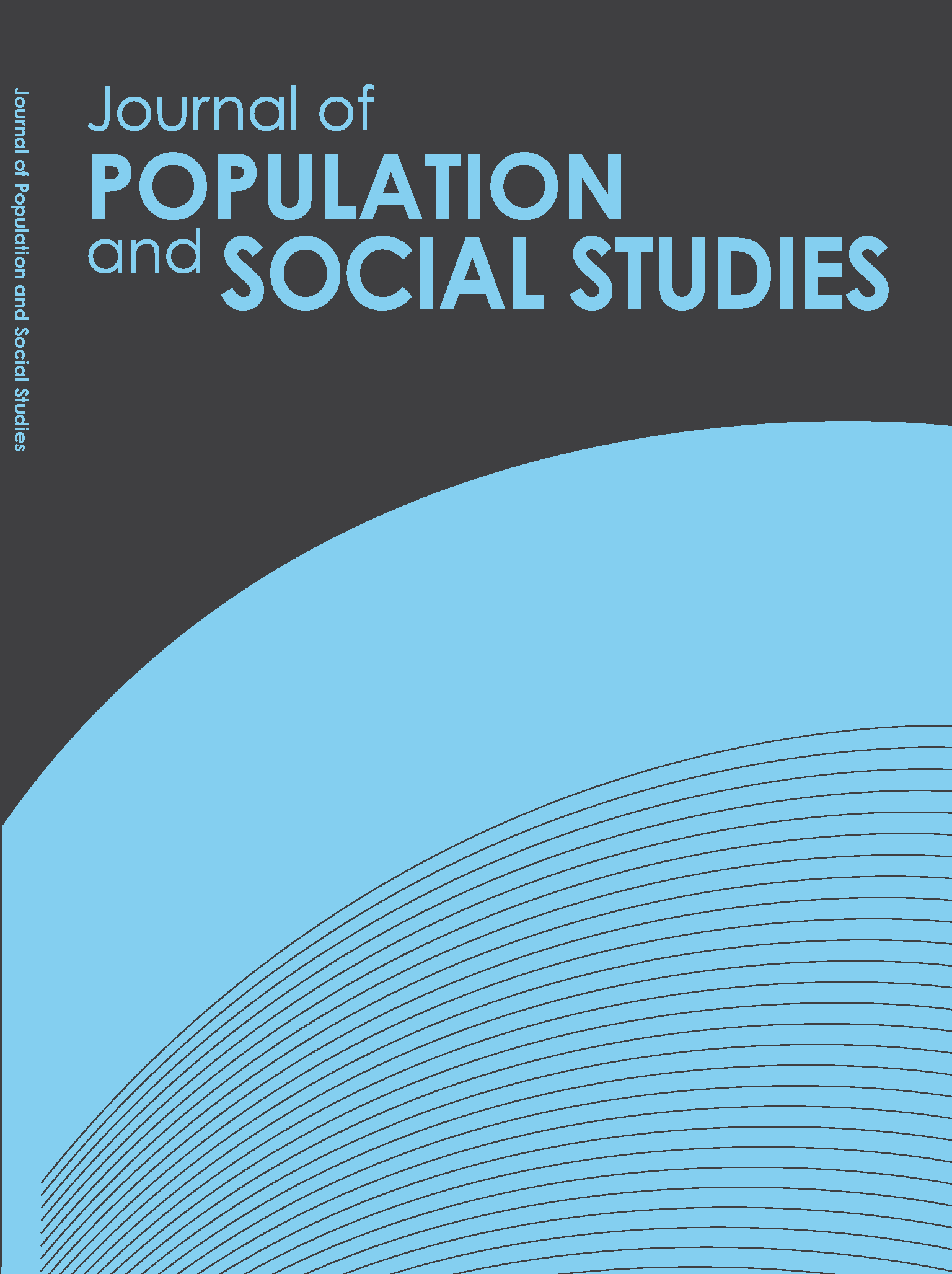Moving Upward from the Bottom: Headship, Gender and Household Poverty in a Western Province of Thailand
Main Article Content
Abstract
This paper seeks to explain the effect of the gender of household heads on the ability to escape from economic poverty. It utilizes panel data from the Kanchanaburi Demographic Surveillance System (KDSS) in Thailand, which had been collected every year from 2000 to 2004. A sample of 1,373 households with the same heads who were at the lowest quintile (poorest) in 2000 was followed throughout the study period. To measure poverty levels, the household poverty index was constructed by using asset based
metric via a technique of Multiple Principle Component Analysis (MPCA). Logistic regression with random effect analysis was then employed.
The results reveal that households with married heads are more likely to economically move upward than those of non-married heads and there is no significant difference between households with married male and female heads. However, households with non-married female heads are better off when compared with their male counterparts. Other variables, namely, age and education of head, access to credit from formal sources and geographical area of residence also help in explaining economic mobility.
These findings suggest that programs aimed at reducing household poverty should target not only single female-headed households but also those with single male heads.


